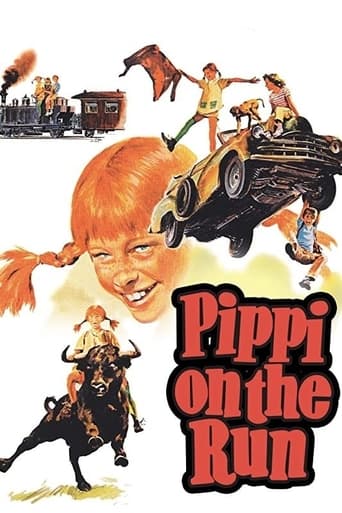
14 Nov 1970

Pippi on the Run
Fed up with their strict parents, Tommy and Annika run away from home, with their friend Pippi Longstocking to look after them in their long trek.
Bullerbyn is a small village in Småland in the late 1920s. There are three farms there. Lisa lives in the middle farm with her brothers Lasse and Bosse. The sisters Britta and Anna live on the Norrgården farm, and Olle lives on the Sörgården farm. And then there's Kerstin, Olle's little sister. It's the height of summer and every day is full of adventure! The first film adaptation of Astrid Lindgren's books about Bullerbyn.
Bosse
Olle
Lasse

Anna
Lisa
Britta

14 Nov 1970

Fed up with their strict parents, Tommy and Annika run away from home, with their friend Pippi Longstocking to look after them in their long trek.

24 Jan 1970

Pippi Longstocking, accompanied by friends Tommy and Annika, adventures on the South Seas to search for her father, who has been kidnapped by pirates.
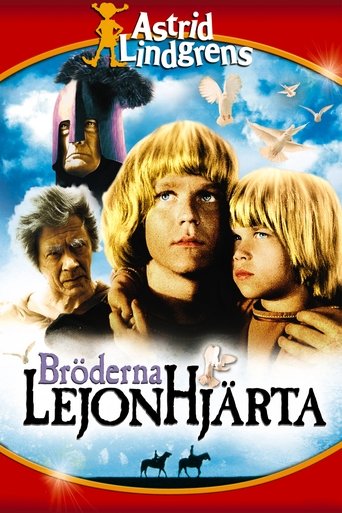
23 Sep 1977

After brothers Jonathan and Crusty pass away, they reunite in Nangijala, the land of eternal spring. Casting a long shadow over their world is the tyrant Tengil, ruler of the country Karmanjaka, where he’s building his new fortress up in the Ancient Mountains.
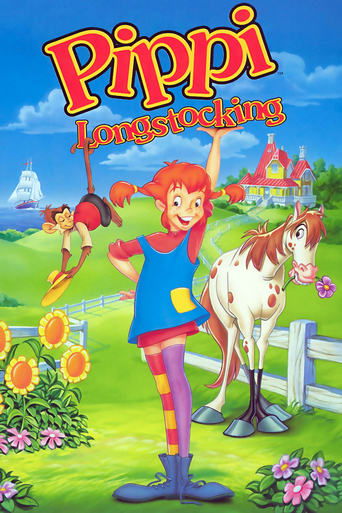
20 Aug 1997

Pippi Longstocking is an extraordinary little girl who lives alone in her house, while her father sails the seven seas. Pippi's irrepressibly fun nature makes her easy to befriend, as neighbors Tommy and Annika find, but can also earn ire, especially from social worker Mrs. Prysselius.
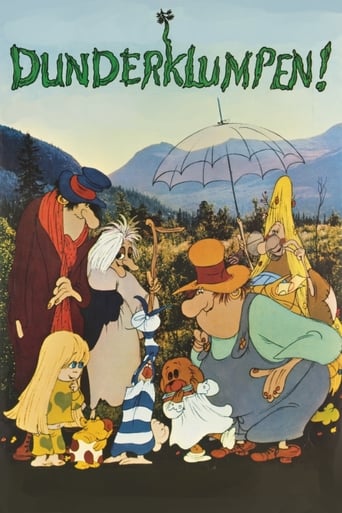
26 Sep 1974

Dunderklumpen lives all alone in the mountains of Jämtland. One Midsummer's Eve when he feels very lonely he sets off on a journey to find friends.

18 Oct 1980

A second movie based on Astrid Lindgren's novel "Madicken och Junibackens pims", which is about two sisters and their adventures in 1910s Sweden.
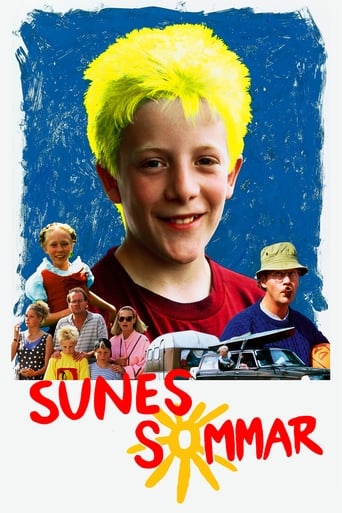
25 Dec 1993

It's summer and Sune Andersson's family is planning a holiday in Greece. Sune's father, Rudolf is sulking because then he won't be able to go on his beloved fishing trip. But after seeing how much the Greek trip is going to cost, he comes up with a great idea: Let's go on a camping trip instead. A lot is happens during this trip and after a while Rudolf discovers that the camping trip might not be as cheat as he thought.
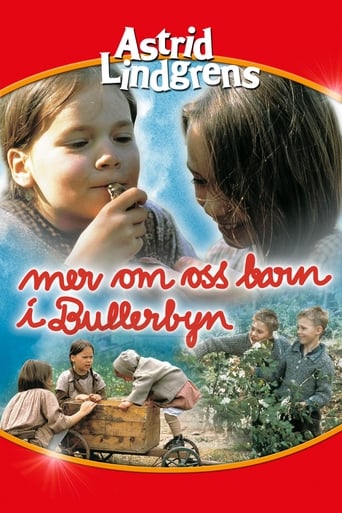
05 Sep 1987

There are only a handful of children living in Bullarby. This film follows their story through the fall and winter, picking up at the moment "The Children of Noisy Village" finishes.
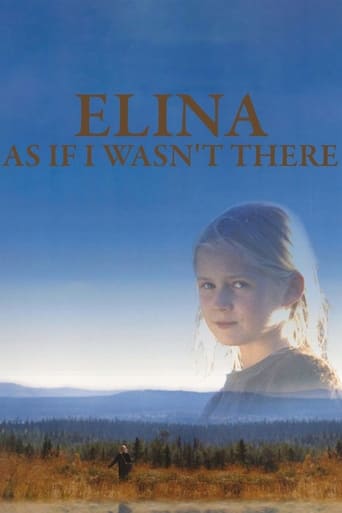
31 Jan 2003

In rural Sweden of the early 1950s, little Elina goes to school again after recovering from tuberculosis, the same illness that has killed her father a few years earlier. Elina's family belongs to Finnish-speaking Finns frowned upon by a staunch schoolmistress who starts hounding Elina for questioning her authority. Elina's mother, sister, and a liberal young male teacher all try to mediate the ensuing battle of wills between Elina and Miss Holm. Elina finds consolation in wandering out on the dangerous marshlands to have imaginary conversations with her dead father. Written by Markku Kuoppamäki
01 Jan 1974
Anna, 12, lives in a village by the sea. She helps her dad in his shop, but does not like the summer guests in the village.
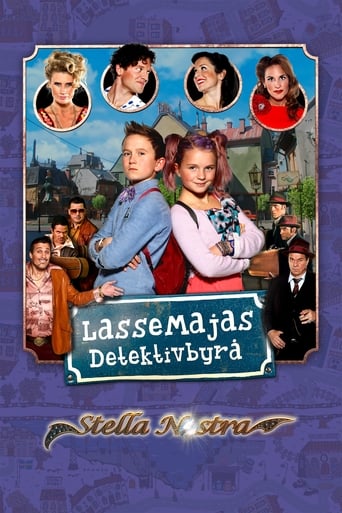
16 Oct 2015

The sleepy little town Valleby is getting ready for the cafe owners Dino Panini's and Sara Bernard's wedding, and our popular young detectives Lasse and Maja stand ready to ensure that nothing will go wrong. But when the wedding couple's respective relatives arrive, they prove to belong to rival mafia families.

11 Dec 2015

Tsatsiki longs for the summer holidays when he will go to Greece to live with his dad Yanis. When Tsatsiki arrive at the village, it is not quite as he remembered it. Guesthouses and taverns are empty, there is a crisis in Greece and in his beloved village. When his dad delivers the bad news that he might have to sell both the hotel and the olive grove, Tsatsiki becomes upset. However, Tsatsiki's mother has taught him to never give up. He realizes that it is up to him to save the hotel, otherwise his beloved place in Greece will be lost.
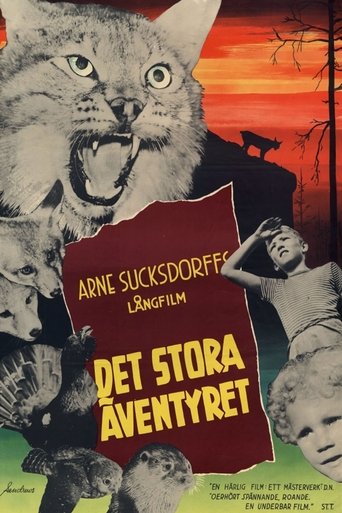
28 Sep 1953

Arne Sucksdorff’s celebrated nature film follows two brothers in rural Sweden as they witness a fox raid and secretly raise an orphaned otter. Told through an adult’s memories, it reflects on childhood, nature, and the fragile balance between wilderness and civilization. The film won the International Prize at the 1954 Cannes Film Festival.
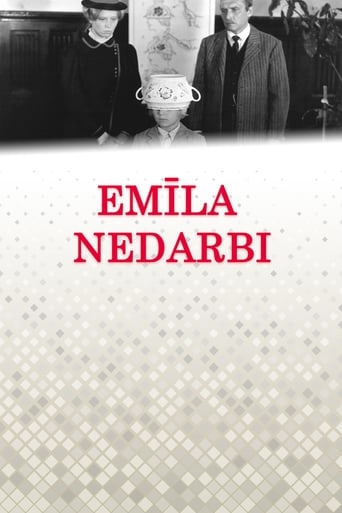
04 Jan 1985

One of the iconic Latvian movies. Based on Astrid Lindgren's book 'Emil of Lönneberga'. A story of a little boy, Emil, who, according to others is incredibly naughty, but actually Emil is a lot more kind hearted than all the rest. And everything he does is to help someone. But somehow it all the time turns out like a prank. His family won't agree with any pranks on themselves, so there goes Emil in his father's tool shed, where he's locked up for every prank. Includes the phrase - 'the main idea is to keep your feet warm', which has been adapted in Latvian culture, so it's already a saying.

28 Nov 2008

In several unrelated stories, the consequences of putting one's foot down – or failing to do so – are explored.

23 Oct 1998

Two teenage girls in small-town Sweden. Elin is beautiful, popular, and bored with life. Agnes is friendless, sad, and secretly in love with Elin.
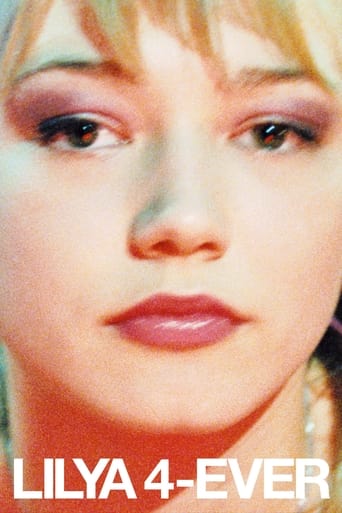
23 Aug 2002

In a struggling post-Soviet community, Lilya a teenage girl is abandoned when her mother moves to the United States with her boyfriend. Facing neglect and poverty, she meets Andrei, who offers her a job in Sweden, giving her hope for a better life — and a journey that will change everything.
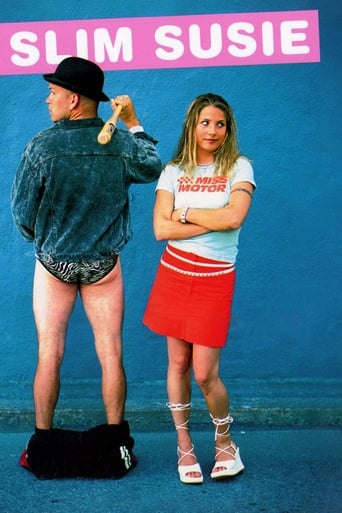
03 Oct 2003

When Erik, a Stockholm urbanite, learns that his beauty-queen sister, Susie, is missing, he goes to their country roots to look for her. But after talking to the eccentric locals -- including a shy video store clerk and a corrupt police officer -- Erik finds a woman who is not at all like the girl he left behind. Award-winning director Ulf Malmros helms this black comedy infused with hipster flair.

24 Oct 2008

When Oskar, a sensitive, bullied 12-year-old boy, meets his new neighbor, the mysterious and moody Eli, they strike up a friendship. Initially reserved with each other, Oskar and Eli slowly form a close bond, but it soon becomes apparent that she is no ordinary young girl.
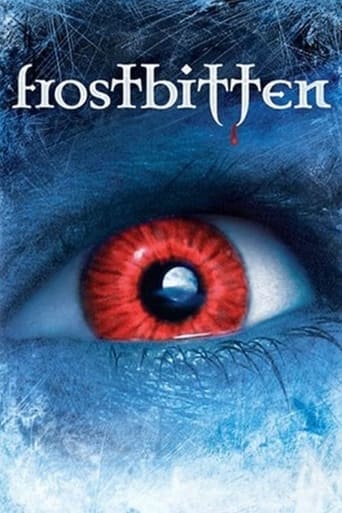
24 Feb 2006

Vampires terrorize a city in Norrbotten, Sweden.